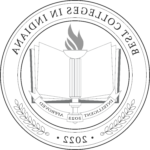
Clinical Mental Health Counseling Master's Program
A Master of Science degree in Clinical Mental Health Counseling from Saint Mary-of-the-Woods College (SMWC) will prepare you for a rewarding career helping those suffering from a variety of mental health issues.
Master of Science (M.S.) in Clinical Mental Health Counseling (CMHC)
The field of mental health is growing rapidly. This program is designed for persons who wish to practice individual, group or family counseling. You will learn such topics as theories of counseling and psychopathology, trauma-informed care and how to develop a professional identity as a counselor. This program will be completed online, with the requirement of two brief on-campus residencies during the program as well as on-site counseling training in the student’s geographic area.
Students participate in hands-on, side-by-side, real-life learning with licensed counselors during their residencies and clinical internship requirements. This program is designed to be completed in two years or three to five years as a part-time student. It includes 60 credit hours plus 100 hours of practicum, 300 hours of internships and 300 hours of advanced internship.
There are no GRE requirements.
Admission Requirements
- B.A. or B.S. (or higher) in related field
- GPA 2.75
- At least 9 credit hours in psychology courses with at least a C
- Official transcripts
- Two professional letters of recommendation
Other specific requirements:
-
- Application
- CV
- Personal statement
- Interview
FAQs
What is clinical mental health counseling?
Clinical mental health counseling is a service provided by trained counseling professionals to clients dealing with issues that affect their mental health. This can include conducting psychiatric diagnostic assessments and using psychotherapy techniques to treat individuals, groups and/or families.
Why get a degree in clinical mental health counseling?
Post Covid, there became an increased demand for counselors. So, by earning your master’s degree in clinical mental health counseling, you can make mental healthcare more accessible to a rapidly expanding population in need. Successful completion of this program will prepare you for a mental health counseling career and leads to license eligibility (LMHC-A); post-degree experience is required for the LMHC license.
What can you do with a degree in clinical mental health counseling?
According to 2021 Burning Glass data, there were 10,598 job postings in a counseling-related field over the last 12 months across the five-state region of Indiana, Illinois, Kentucky, Michigan, and Ohio. They reported expecting this to grow over the next 10 years, with the Market Relative Growth listed as high. Having a master’s degree in clinical mental health counseling allows you to practice counseling in a variety of settings. These include outpatient clinics, hospitals, schools, community centers, private practices, and more. This degree, the license in mental health counseling, and field experience will also open the door for a variety of leadership roles (e.g. team lead, program manager, clinical director, operations director, executive director, chief clinical officer, chief operations officer, chief executive officer, etc.) in community mental health centers, nonprofits, not-for-profits, and the private sector.
What is the average annual salary of someone with a clinical mental health counseling master’s degree?
According to ZipRecruiter, the average annual salary for a licensed mental health counselor in Indiana is $65,983. This salary potential increases with experience and for those interested in leadership roles further into their career.
What support and resources are provided at SMWC?
The Learning Resource Center (LRC) provides exceptional, personalized learning resource services to encourage student success. The LRC offers help with a range of academic support services, including a writing center, tutoring, college success courses and more.
Saint Mary-of-the-Woods College is routinely ranked by US News and World Report among the Best Regional Universities in the Midwest and the Best Value Schools. Our departments are also routinely ranked for their individual degree programs.
See the SMWC Difference:
-
 Top Performers on Social MobilityU.S. News & World Report
Top Performers on Social MobilityU.S. News & World Report -

 The 25 Best Online Catholic UniversitiesOnline Course Report
The 25 Best Online Catholic UniversitiesOnline Course Report -

 Designated Military Friendly SchoolMilitary Friendly
Designated Military Friendly SchoolMilitary Friendly -

 #8 Best Online Colleges in IndianaOnlineU
#8 Best Online Colleges in IndianaOnlineU -

 Historically Women’s Colleges in the U.S.Great Value Colleges
Historically Women’s Colleges in the U.S.Great Value Colleges -


 #2 Best Affordable Catholic Colleges with Online Bachelor’s DegreesAffordable Schools
#2 Best Affordable Catholic Colleges with Online Bachelor’s DegreesAffordable Schools -


 #6 Best Online Universities and Colleges In IndianaIntelligent
#6 Best Online Universities and Colleges In IndianaIntelligent -






 Best Online Bachelor's ProgramsU.S. News & World Report
Best Online Bachelor's ProgramsU.S. News & World Report -

 #2 Best Online Colleges in IndianaValue Colleges
#2 Best Online Colleges in IndianaValue Colleges -
Top College for AffordabilityScholarship360
-






 Least Debt - Regional Universities MidwestU.S. News & World Report
Least Debt - Regional Universities MidwestU.S. News & World Report -
Best Online Colleges & Schools in IndianaStudy.com
-


 #5 Best Affordable Schools in Indiana for Bachelor’s DegreeAffordable Schools
#5 Best Affordable Schools in Indiana for Bachelor’s DegreeAffordable Schools -

 #6 Best Colleges in IndianaIntelligent
#6 Best Colleges in IndianaIntelligent -

 #10 Best Online CollegesCenter for Online Education
#10 Best Online CollegesCenter for Online Education -

 #3 Accredited Online Colleges in Indiana for International StudentsScholarship Hall
#3 Accredited Online Colleges in Indiana for International StudentsScholarship Hall -
#9 Schools Ranked by Student-Faculty RatioOEDb
-






 Economic Diversity - Regional Universities MidwestU.S. News & World Report
Economic Diversity - Regional Universities MidwestU.S. News & World Report -

 #5 Online Colleges in IndianaGreat Value Colleges
#5 Online Colleges in IndianaGreat Value Colleges -

 #6 Best Online Colleges in IndianaBest Colleges
#6 Best Online Colleges in IndianaBest Colleges -

 #7 Best Online Colleges in IndianaAccredited Schools Online
#7 Best Online Colleges in IndianaAccredited Schools Online -
#8 Top Online Colleges in IndianaOnlineDegrees.com
-

 25 Best Online CollegesBest College Reviews
25 Best Online CollegesBest College Reviews -

 Best Online MastersOnline Masters Colleges
Best Online MastersOnline Masters Colleges -

 CPN Seal of PreventionCampus Prevention Network
CPN Seal of PreventionCampus Prevention Network -

 Best Colleges in IndianaBest Colleges
Best Colleges in IndianaBest Colleges -






 Best Value SchoolsU.S. News & World Report
Best Value SchoolsU.S. News & World Report -






 Best Regional Universities in the MidwestU.S. News & World Report
Best Regional Universities in the MidwestU.S. News & World Report -
Top Adult Degree ProgramsAbound
-

 #7 The Best Online Colleges in IndianaThe Best Schools
#7 The Best Online Colleges in IndianaThe Best Schools -


 Easiest AdmissionsIntelligent
Easiest AdmissionsIntelligent



